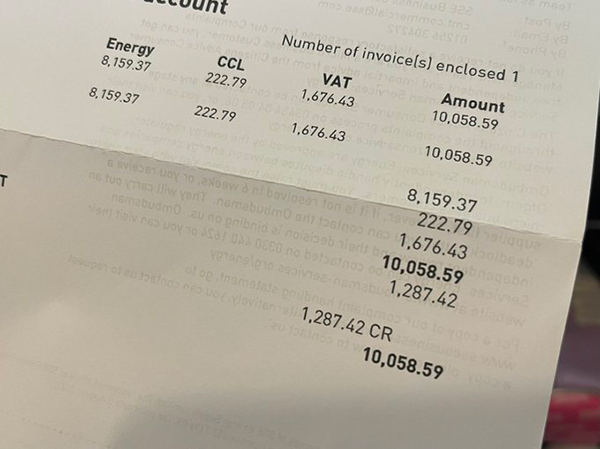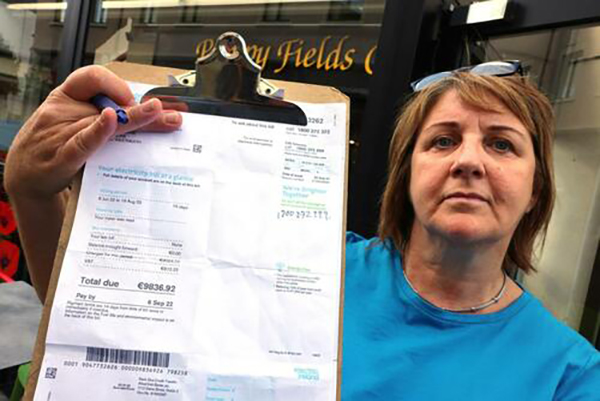Is another subprime mortgage bubble just over the horizon? Industry seeks to eliminate debt-to-income rules that caused the last one
02/11/2020 / By JD Heyes

About a decade ago, thanks to crazy loose government rules that allowed mortgage companies to offer insanely low payments and interest rates on insanely expensive property to people who had no ability to pay for it, we seem on the precipice of repeating that disaster.
In 2007, the bottom fell out of the U.S. housing market after rules put in place years earlier by the Clinton administration to make housing more affordable for minorities and poor working-class Americans led to insane lending practices.
What happened, in a nutshell, was this: So much money had been lent to so many people who simply could not afford the eventual balloon payments that came due within a few years of the loan, they lost their homes to predatory banking interests.
Eventually, the bad loans could not be offloaded anymore and the entire bill came due. We were this close to losing the entire global financial system, and in fact, a global recession followed the collapse of U.S. markets and industries.
No one in the U.S. government would ever let that happen again, right? That’s what we were told.
The Obama administration and a Democrat-led Congress even passed massive new financial services and financial industry legislation (Dodd-Frank) that created a whole new powerful agency, the Consumer Financial Protection Bureau, or CFPB.
That agency, whose budget is secretive and whose decisions are beyond the reach of congressional oversight (by design) and was championed by none other than 2020 Democratic presidential contender Sen. Elizabeth Warren (Mass.), is apparently set to put into effect the same conditions that led to near-financial collapse at the end of the Bush administration.
As reported by Bankrate, the CFPB is moving to remove the mortgage-to-debt income rule for borrowers:
Heeding the call of some of the largest mortgage lenders in the industry, the Consumer Financial Protection Bureau (CFPB) is moving to back the elimination of debt-to-income (DTI) requirements in mortgage underwriting.
In a letter CFPB Director Kathy Kraninger sent to Congress today, the CFPB asked to amend the Ability to Repay/Qualified Mortgage rule (ATR/QM rule) in order to remove DTI as a qualifying factor in mortgage underwriting.
All the rules apply – except to the federal government
It should be noted that the DTI rule was specifically created in response to the 2007-2008 financial crisis that rocked the American financial system and shook the global economic structure to its core.
The objective of the rule was simple: To prevent banks and lending institutions from providing money to borrowers who do not have the means to repay their loans.
“The ATR/QM rules include eight separate borrower qualifications that lenders must examine when approving a loan. The rule includes things like verification of income, credit history and DTI, among others,” Bankrate reported. “The only portion the CFPB is asking to amend is the DTI requirement as a powerful coalition of lenders deems the rule unfair and constraining.”
Why would an agency established in large part to prevent borrowers from becoming saddled with too much mortgage debt now ditch one of its core functions?
No clear-eyed financial analyst can really answer that question.
According to one of them – Mike Shedlock of MishTalk – “At the peak of every boom comes one final act of repetitive stupidity. This may be it.”
He said the CFPB is acting on the request of Wells Fargo, Bank of America, Quicken Loans, Caliber Home Loans, the Mortgage Bankers Association, the American Bankers Association, the National Fair Housing Alliance and others. The lenders want to get rid of the 43 percent DTI rule because government-backed lenders Fannie Mae and Freddie Mac can exceed it since the CFPB-mandated provision doesn’t apply to them (of course).
This seems like a perfect example of history not necessarily repeating itself, but rhyming an awful lot.
Sources include:
Submit a correction >>
Tagged Under:
banks, CFPB, Collapse, Congress, consumer lending, democrats, Dodd-Frank, finance, financial collapse, financial crisis, mortgage loan, Obama Administration
This article may contain statements that reflect the opinion of the author
RECENT NEWS & ARTICLES
COPYRIGHT © 2017 NATIONAL DEBT NEWS





















